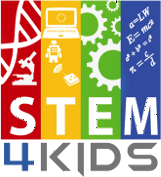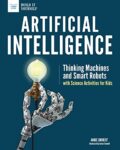Today we had an interview with Dr. Jane Lee:
Interviewer: Can you tell us a little about your background and how you became interested in computer science?
Dr. Lee: Sure. I grew up in a family of engineers, so I was always exposed to science and technology from a young age. When I was in high school, I took a programming class and fell in love with the logical and creative aspects of coding. From there, I went on to study computer science in college and eventually earned my PhD in the field.
Interviewer: What kind of research do you do as a computer scientist?
Dr. Lee: My research focuses on machine learning and artificial intelligence. Specifically, I’m interested in developing algorithms that can learn from large datasets and make predictions or decisions based on that learning. This has applications in a wide range of fields, from healthcare to finance to transportation.
Interviewer: That sounds fascinating. Can you give us an example of a project you’ve worked on?
Dr. Lee: Sure. One project I worked on involved developing a machine learning algorithm that could predict which patients were most likely to be readmitted to the hospital within 30 days of being discharged. We trained the algorithm on a dataset of medical records, and it was able to accurately predict readmissions with a high degree of accuracy. This could be really useful for hospitals to identify patients who may need extra care or follow-up after being discharged.
Interviewer: What do you see as some of the biggest challenges facing the field of computer science right now?
Dr. Lee: One challenge is the ethical implications of AI and machine learning. As these technologies become more powerful and more widespread, we need to make sure they are being used in ways that are fair and equitable. We also need to be mindful of potential biases in the data that is used to train these algorithms, and work to ensure that they are not perpetuating existing inequalities.
Interviewer: That’s definitely an important issue to consider. Finally, what advice would you give to young people who are interested in pursuing a career in computer science?
Dr. Lee: My advice would be to never stop learning and exploring. The field of computer science is constantly evolving, so it’s important to stay up-to-date on new technologies and techniques. It’s also important to have a passion for problem-solving and a willingness to try new things. And finally, don’t be afraid to ask for help or seek out mentors who can guide you along the way.






